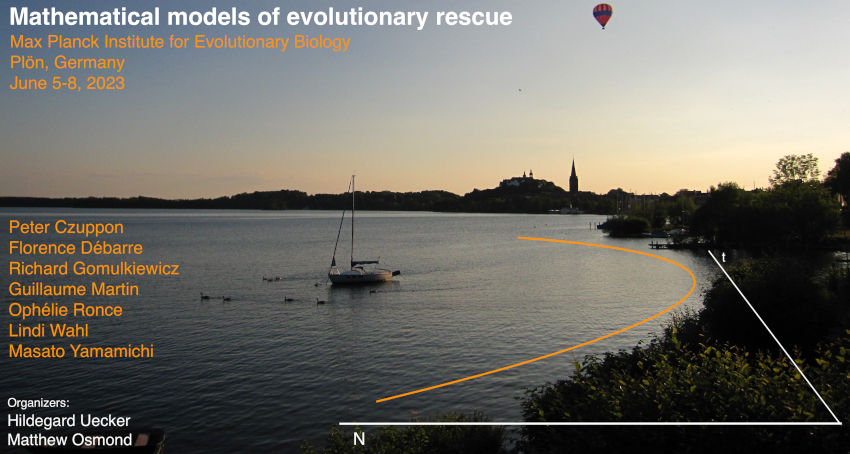Speaker
Description
Bacterial plasmids and other extra-chromosomal DNA elements frequently carry genes that have important effects on the fitness of their hosts. Because plasmids often exist in the bacterial cell in multiple copies, different plasmid copies can carry distinct alleles, allowing for heterozygosity not possible for loci on haploid chromosomes. This plasmid-mediated heterozygosity may increase the fitness of bacterial cells in circumstances where there is an advantage to having multiple distinct alleles (heterozypgote advantage); for example, plasmid-mediated heterozygosity of antibiotic resistance alleles can produce multidrug resistance, in which a single bacterial strain is resistant to multiple antibiotics, a serious problem in the clinical context. However, plasmid-mediated heterozygosity is also subject to constant loss due to random segregation of plasmids on cell division: each division has some probability of producing a homozygous daughter cell. We present a model of the rescue of a bacterial population by the establishment of a novel (mutant) allele on a plasmid in a heterozygote advantage scenario. We derive the minimum threshold on the selective advantage of heterozygotes required to overcome segregative loss and make rescue possible; this threshold decreases with increasing copy number of the plasmid. We further show that the formation of cointegrates from the fusion of plasmids increases the probability of rescue, as distinct alleles on cointegrated plasmids are no longer subject to stochastic loss. These results contribute to understanding both the contribution of the evolution of plasmid-level traits, such as copy number, to bacterial evolution and the evolution of antibiotic resistance in complex selective environments.

